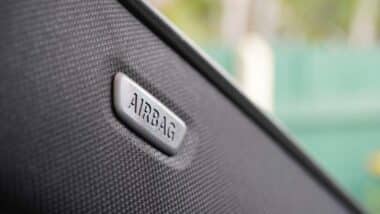 A BMW dealership in Georgia told a federal court that the proposed class action lawsuit filed against the car manufacturer alleging that certain vehicles experience a software defect must be dealt with via arbitration due to the contract terms signed by the vehicle owner upon purchase.
A BMW dealership in Georgia told a federal court that the proposed class action lawsuit filed against the car manufacturer alleging that certain vehicles experience a software defect must be dealt with via arbitration due to the contract terms signed by the vehicle owner upon purchase.
Nalley BMW LLC told the judge that plaintiff Shawn B. McCullers signed a contract in June 2013 as part of his purchase of a used 2009 BMW 535i that stipulated that defect claims are subject to mandatory arbitration, and specifically bars consumers from bringing class allegations.
According to the dealer, McCullers signed an “Agreement on Mandatory Arbitration” in the purchase agreement that “clearly and conspicuously” referred to a separate “Agreement to Arbitrate” and class action waiver. Nalley BMW asserted that the plaintiff signed both agreements and should be bound by his agreement to arbitrate and should not be allowed to proceed with class action claims.
In his lawsuit filed last month, McCullers claimed that his BMW has been in the repair shop 21 times since he purchased the vehicle as part of a BMW of North America campaign was launched to update the engine control unit (ECU) software in eight of its models that are all equipped with 3-liter twin turbo engines.
Instead of fixing the problems with his vehicle, McCullers claimed that the updates to the ECU actually made the problems worse. He said these problems could allegedly include issues such as dangerous acceleration delays, decreased gas mileage and sudden loss of power.
In its memorandum to compel arbitration or dismiss the lawsuit, Nalley BMW insisted that McCullers “expressly acknowledged that he read and agreed to be bound by the arbitration agreement” in his 2013 purchase contract.
“The arbitration agreement specifically references plaintiff’s vehicle and broadly covers all claims and disputes concerning the vehicle and any related products or services purchased, as well as the negotiations of any contracts, including the purchase agreement,” Nalley BMW maintained. “The arbitration agreement also clearly describes the ramifications of the agreement, including an unambiguous class action waiver.”
In response to McCullers’ initial filing of the lawsuit, Nalley BMW claimed it promptly sent a notice to the plaintiff by mail of his obligation to arbitrate his claims, but allegedly the plaintiff did not respond to the mailed notice.
Nalley BMW asserts that if the court will not agree to compel arbitration, the lawsuit should be dismissed in its entirety because the claims fail under the applicable laws in Georgia.
McCullers brought forth claims of fraud, negligent misrepresentation, fraudulent concealment and alleged violations of the Uniform Deceptive Trade Practices At and the Fair Business Practices Act. Nalley BMW asserts that these claims “are not based on any plausible facts or actionable representations” and are also barred by the “as is” contract that McCullers signed upon purchase.
McCullers is represented by Sean R. Campbell of Champion Law Group, LLC.
The BMW Engine Software Defect Class Action Lawsuit is Shawn B. McCullers v. BMW of North America LLC, et al., Case No. 1:16-cv-00767, in the U.S. District Court for the Northern District of Georgia.
ATTORNEY ADVERTISING
Top Class Actions is a Proud Member of the American Bar Association
LEGAL INFORMATION IS NOT LEGAL ADVICE
Top Class Actions Legal Statement
©2008 – 2026 Top Class Actions® LLC
Various Trademarks held by their respective owners
This website is not intended for viewing or usage by European Union citizens.















2 thoughts onBMW Dealer Argues for Arbitration in Software Defect Class Action
I would like to join this lawsuit. I have a 2009 bmw 335i and replaced both turbos at 51,000 miles. I also experienced limp mode, which almost got me killed. John Decker
I would like to join in on this suit. I also own a 2009 bmw. That constantly shut down. I can’t drive it more than 20 minutes.